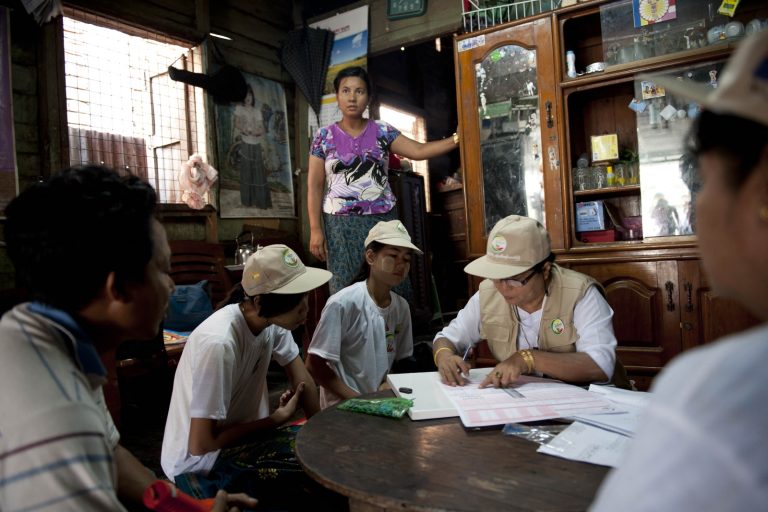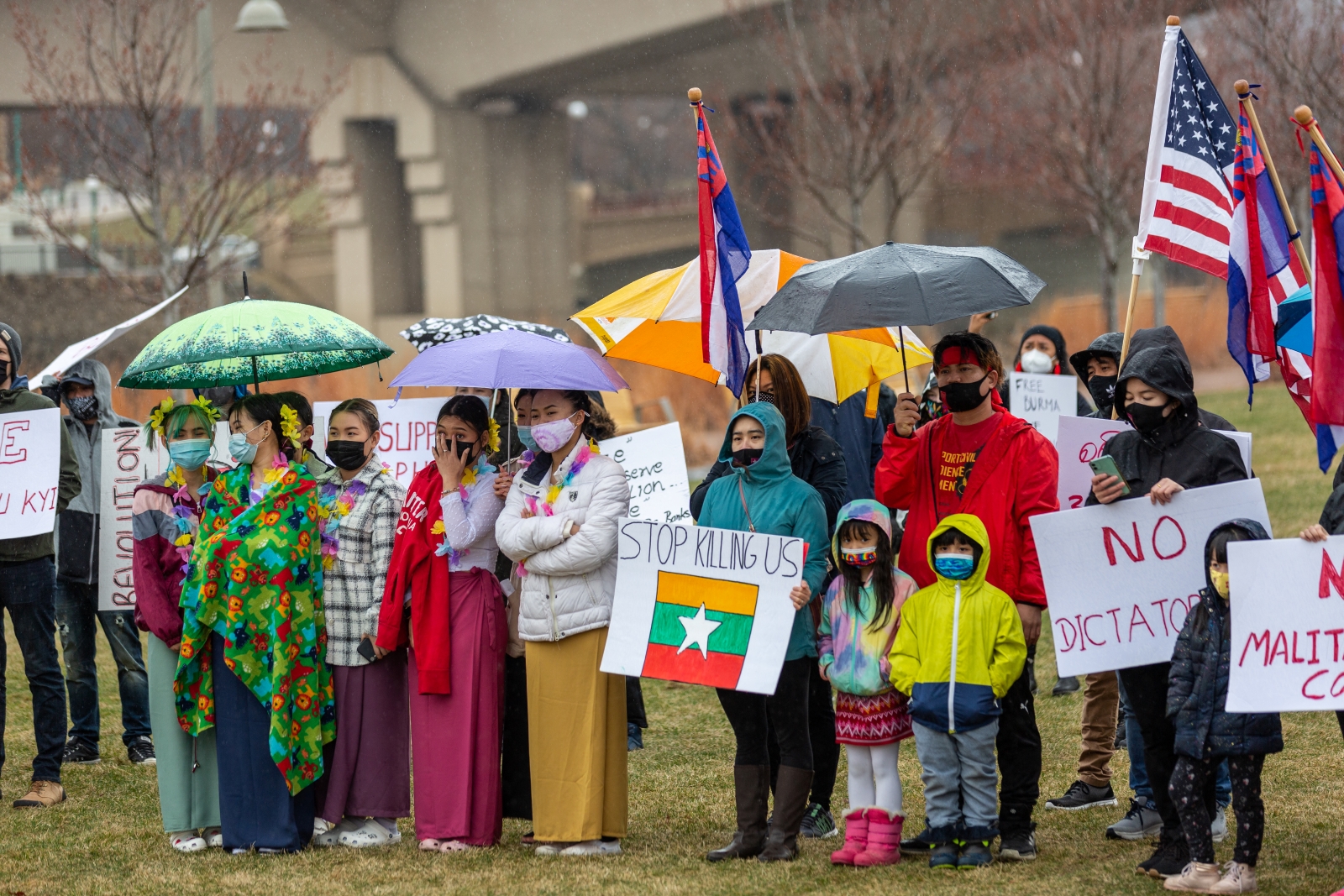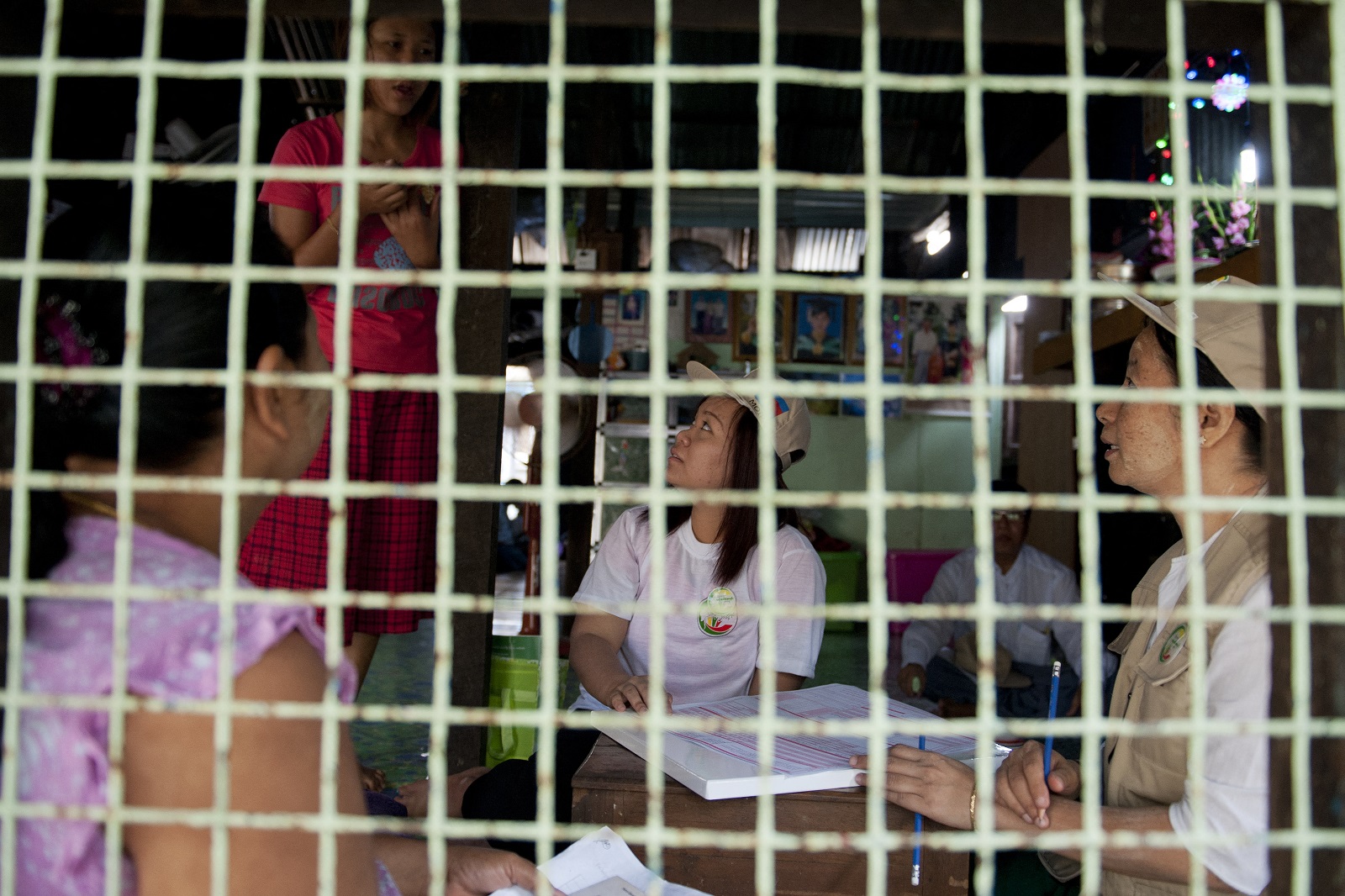Four Myanmar women recently travelled to the US to witness the historic election there, and despite many criticisms of the campaign, still found many positives to be taken from the country’s political system.
By MINDY WALKER | FRONTIER
THIS YEAR’S United States Presidential election was so divisive that when I told people that I was hosting four young women from Myanmar who would witness the campaign in Wisconsin, the response was incredulous.
Many could not believe that I was bringing these women to witness what was termed by one person as “the worst part of America”. Others mentioned that the whole campaign was an embarrassment.
But as someone who has worked training political parties and politicians across Myanmar, I wanted them to see the best parts of our democracy, which I set out to do. That also meant they had to witness some of the worst parts too.
This was the second time the Richardson Center had brought a delegation of young female political leaders from Myanmar to Wisconsin. In 2014, three women came with me to witness the mid-term elections.
Support more independent journalism like this. Sign up to be a Frontier member.
After they returned to their homeland, two ran for parliament – one of them, Daw Ni Ni May Myint is now a National League for Democracy MP in the Pyithu Hluttaw for Taunggok, Rakhine State, and one of the youngest women in parliament. The third is a tireless trainer of political parties in Myanmar, sharing what she learned with people across the country.
I was excited that these four women were coming this year and would, if the polls were correct, see a woman elected as US president for the first time. I was excited that they would take energy and inspiration back with them to Myanmar and hopefully seek political office.
As we now know, things didn’t turn out exactly as I had hoped but there have still been bright spots, and many lessons learned.
The four women saw a rally led by Ms Chelsea Clinton, the daughter of the Democratic Party’s presidential candidate Ms Hillary Clinton, and a speech by former New York Mayor Mr Rudy Giuliani, a close ally of Republican candidate Mr Donald Trump.
Other highlights included attending a Republican women’s luncheon, a volunteer pep talk by US senator for Wisconsin Ms Tammy Baldwin and joining two candidates who were running for the state legislature in their door-to-door campaigning.
All of these activities, including the speeches, involved a form of dialogue with constituents, something that is not a common sight in Myanmar politics.
What most impressed one of the women, Daw Khin Sandar Tun, was that Chelsea Clinton took questions from the audience, including ones that would be regarded as tough.
“All of the people who asked questions were young people. You wouldn’t see that in Myanmar. They feel brave enough and they ask good questions,” she said.
The aim of the trip was for the women to see what politics at a local level looks like, including listening closely to the voters and showing that you care about what is important to them. Our political trainings have focused on this for the past four years in Myanmar, but seeing it in action is more powerful than being told to do it.
For Wisconsinites, the weather was unseasonably warm, but for the Myanmar women it was the coldest temperatures they had ever experienced, getting down to 4 degrees Celsius at night. But despite this challenge, they went door-to-door with Republican candidate for the Wisconsin State Assembly Mr David Steffen, as he encouraged his constituents to get out and vote on November 8.
Steffen has been involved in politics for many years and has served in various political roles. He stressed how important it was to go out and meet constituents, even if you are in a safe seat.
People want an opportunity to have their voices heard, and this is especially true in Myanmar where dialogue between politicians and the public has not been open for decades.
Nang Kham Bwar, a delegate from the Pa-O National Organisation, said she thinks this person-to-person style of campaigning could be effective in her community, where inclusion in government decision-making is rare.
After talking to State Representative Ms Melissa Sargent about her path to politics, the delegates learned that the barriers for women’s participation is almost as high in America as in Myanmar.
She and other female politicians in America talked about how women do not think about running for office until encouraged to do so by other people. They have to think about how it will affect their families first and if they can juggle household responsibilities with work and civic engagement.
Sargent was pregnant, had three young boys and ran her own business before she was asked by her community to run. Luckily, her family was supportive and she is now a vocal advocate for working families.
The fact that politics in the US is still very much a boys’ club was reflected in comments made by the former Lieutenant Governor of Wisconsin, Ms Barbara Lawton, and other women political leaders.
Lawton shared with the women how she had to prove herself on a daily basis to be considered a serious contender as both a candidate, and when serving in the second highest position in state government.
Women have to go the extra mile to make it clear they belong in the room, she told them. The delegates learned that women in the US face tough questions about running for office but also that perseverance pays off.
Former Dane County board supervisor Ms Analiese Eicher was often the youngest person and the only woman seated around the table during committee meetings. The delegates were inspired by the fact that she could, as a 22-year-old, have as much say in government as her elders and didn’t shrink from being a voice for her mostly student-based constituency.
Eicher now serves on the board of Emerge Wisconsin, which trains and empowers women to run for political office at all levels of government in Wisconsin.
Even though the glass ceiling at the very top of US politics wasn’t shattered, we saw major gains for women at other levels of government. We saw four women of colour elected to the US Senate, including an army veteran, and in Minnesota, Ms Ilhan Omar became the first Muslim women of Somali descent to take a seat in the House of Representatives.
When the Myanmar delegates were asked what differences they saw between the two countries regarding campaigning techniques, they spoke about the negative campaigning in America.
“We aren’t allowed to say anything negative about the other parties or to do negative campaigning,” said Ma Thin Thin Swe, a lawyer and a member of the National League for Democracy.
The general response to this from Americans was that people in Myanmar are lucky not to see these tactics used. The name calling and negativity, especially during this election campaign, became unbearable for almost everyone. The lack of civility was a surprise to the delegates, and they kept asking if it was legal for a candidate to say such terrible things about an opponent.
However, despite the ugly nature of the election, there were positives to take from it. The ability for all citizens to participate in their government is an admirable trait of our system.
Journalists are able to report on what is happening without fear of imprisonment or intimidation, citizens can contact their representatives at all levels to express support or ask questions, and the state legislature is open to all, ensuring transparency.
Despite the result being a punch in the gut for many people in the United States, and around the world, there was pride that a woman had come so close to becoming the United States president.
“I was inspired by Hillary Clinton’s concession speech and how she encouraged young women to keep doing the great work and not get discouraged by her loss,” said delegate Daw Zin Min Thu, while wearing her “Trample the Patriarchy” t-shirt.
Zin Min Thu founded the women’s organisation Nat Pha Yar Ma Institute, which trains young women about interfaith peace building, gender issues and civic engagement.
She said she was encouraged by the way people accepted election losses and that, in her role assisting MPs in Nay Pyi Taw with the National Democratic Institute, she would share stories of inspiration she learned in the US.
For her, there were many similarities between the two countries, particularly in how challenging it is to encourage people to vote.
Even though the Americans she meets in Myanmar are passionate about politics and democracy, not everyone she met in America was interested in electoral politics, or viewed the political system as something that represents them.
While we contemplate what this past election means for the US, and the world, there are bright spots to be found in our American political system. We cannot be complacent and expect our institutions to remain strong just because they have been for the past 200 years.
There is now a lot of reassessing of what our government should look like and how it can represent an ever-changing America, but I am confident it can still be looked to as a model of free speech, democracy and representative government.
We will just need to work a bit harder to ensure it remains that way.
Mindy Walker is the Myanmar representative for the Richardson Center for Global Engagement which hosted the four-person delegation in Wisconsin from October 25 to November 11, 2016. The four women participants were selected based upon their political experience and desire to be involved in electoral politics in the future.







